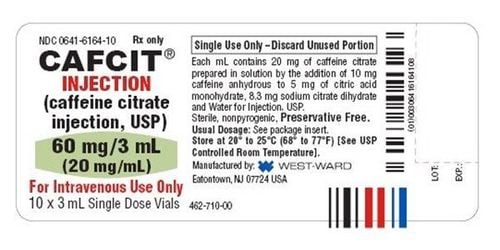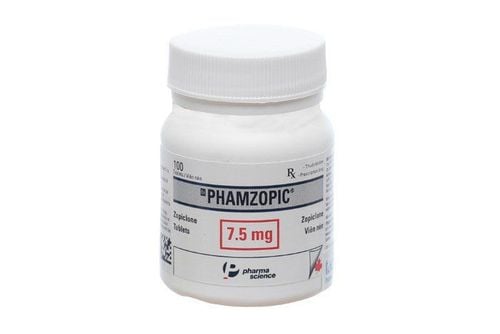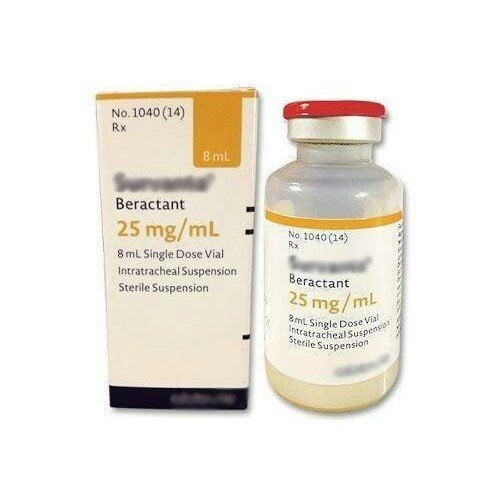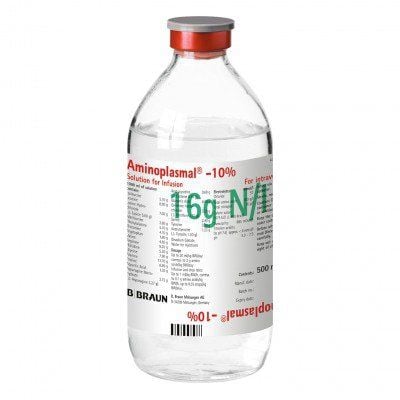This is an automatically translated article.
The article is professionally consulted by Master, Doctor Dang Huy Toan - Pediatrician - Neonatologist - Department of Pediatrics - Neonatology - Vinmec Nha Trang International General Hospital.
Sleep apnea is common in premature babies and congenital diseases. The disease rarely causes long-term complications and goes away on its own over time. However, if the family detects that the child has severe symptoms, cyanosis, difficulty breathing, it is necessary to take the child to the doctor for treatment.
1. What is infant sleep apnea?
Sleep apnea is a medical disorder in which breathing is repeatedly interrupted during sleep. If left untreated, it can lead to serious complications such as slow heart rate and poor growth.
Previously, medical professionals believed that sleep apnea was associated with an increased risk of sudden infant death syndrome (SIDS), but several studies over the past two decades have not found that. What kind of relationship is that?
Sleep apnea syndromes are divided into 3 types:
Obstructive Sleep Apnea (OSA): Caused by an obstruction in the upper airway Central Sleep Apnea (CSA): No obstruction but The brain does not send signals to the muscles responsible for breathing Mixed apnea: A combination of obstructive and central sleep apnea. Central sleep apnea (CSA) is common in premature or full-term infants. Mixed apnea is also seen in infants, but only when the baby is more rigid. Adults and children 1 year of age and older often have obstructive sleep apnea (OSA).
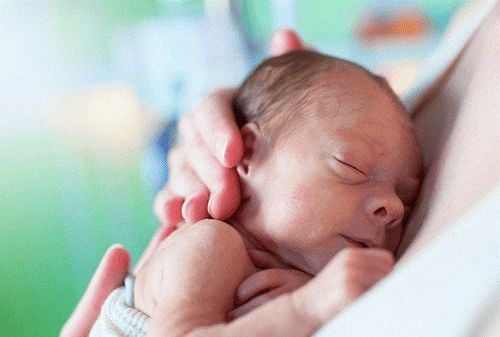
Trẻ sinh non rất dễ gặp phải tình trạng ngưng thở khi ngủ
2. Which infants are at risk for sleep apnea?
All neonates are at risk for sleep apnea, but it is more common in premature infants, with Down syndrome and other congenital conditions.
The earlier the baby is born, the higher the risk of sleep apnea. And more than half of children with Down syndrome have obstructive sleep apnea (OSA).
In babies born before 37 weeks of pregnancy, the condition is called apnea of prematurity. In babies born at 37 weeks or later, it is called neonatal apnea.
3. What causes sleep apnea?
Causes of sleep apnea in infants are usually due to incomplete brain stem structure (the organ that regulates breathing) or airway obstruction. In addition, some other causes include:
Brain hemorrhage Exposure to drugs or toxins Birth defects Infections Respiratory diseases Gastrointestinal problems (such as reflux) Biochemical imbalances in the body body (excess or deficient amounts of calcium or glucose) Heart or blood vessel problems
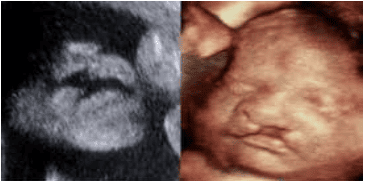
Trẻ bị dị tật bẩm sinh có thể là nguyên nhân gây ra ngưng thở khi ngủ
4. Symptoms of Sleep Apnea in Babies
Some children with sleep apnea stop breathing for 20 seconds or more during sleep. Others stop breathing for a shorter time and become floppy, pale, or their heart rate slows down during sleep.
It is normal for babies under 6 months to have an irregular breathing pattern. This is called "periodic breathing," which usually begins with a fast, slower breathing, and then pauses for 5 to 10 seconds. Then the pattern turns around again with rapid breathing. Families should not be too worried about periodic breathing, babies will perfect their respiratory organs faster when they are about 6 months old.
5. What dangers can sleep apnea cause?
Apnea can cause serious complications and, in rare cases, death, especially for babies born before 28 weeks of gestation.
When a baby stops breathing, the amount of oxygen in the blood decreases and the level of carbon dioxide (CO2) increases. The child may experience a severe drop in heart rate or pass out and need resuscitation.
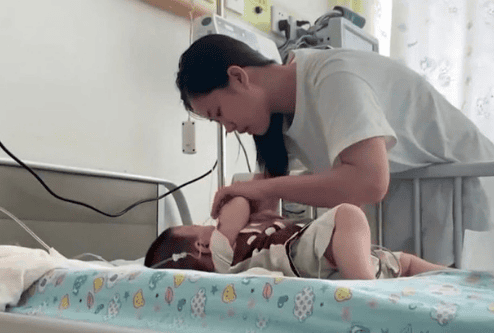
Khi trẻ bị ngưng thở khi ngủ cần được hồi sức nhanh chóng
6. How is sleep apnea diagnosed in infants?
If sleep apnea is suspected, a physical exam and various tests may be ordered, including measuring blood oxygen levels and monitoring breathing, heart rate, and X-rays.
Alternatively, you may be referred to see a sleep specialist, pediatrician (pulmonologist) or an apnea specialist.
The test commonly used to diagnose sleep apnea is called polysomnography. This is a painless procedure performed in a sleep lab under the supervision of trained technicians. It tracks your baby's brain waves, eye movements, breathing rate and blood oxygen levels, as well as your baby's snoring and panting during sleep.
7. How is sleep apnea treated?
Treatment of sleep apnea depends on the severity of the condition. Your doctor may recommend using a home apnea monitor to monitor your baby's breathing and heart rate, or medication to stimulate the central nervous system.
Some children with obstructive sleep apnea need to use a continuous positive airway pressure (CPAP) ventilator, which keeps the airways open by blowing air into the nose through a mask during sleep. CPAP machines usually do not relieve symptoms of central sleep apnea.
Newborns with sleep apnea rarely develop long-term complications. Often the apnea goes away on its own as the child matures. Most premature babies no longer have symptoms by 44 weeks of conception.
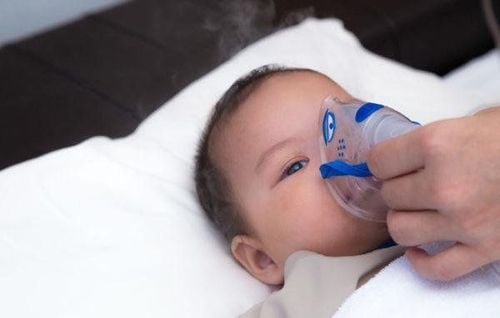
Trẻ có thể cần sử dụng máy thở áp lực dương liên tục (CPAP)
8. What to do if the child is thought to have stopped breathing during sleep?
Touch or nudge your baby to see if he reacts. If not, call 911 immediately. Children can be in danger if their forehead or body turns blue. However, it's not unusual for your baby's hands and feet or the skin around her mouth to be bluish, especially when she's a little cold or crying.
If you know how to perform CPR on an infant, do it urgently and have someone else call 911. If you are alone with the child, do CPR for 2 minutes, call for help, then continue CPR until help is available or the child starts breathing again.
Knowing how to perform CPR on an infant is important for all parents, especially for parents of babies with sleep apnea. You can look to hospitals or the Red Cross for advice on taking infant CPR courses.

Ba mẹ có thể đưa bé đến Bệnh viện Đa khoa Quốc tế Vinmec đo đa ký giấc ngủ
As a key area of Vinmec Health system, Pediatrics Department always brings satisfaction to customers and is highly appreciated by industry experts with:
Gathering a team of top doctors and nurses in Pediatrics : consists of leading experts with high professional qualifications (professors, associate professors, doctorates, masters), experienced, worked at major hospitals such as Bach Mai, 108.. Doctors All doctors are well-trained, professional, conscientious, knowledgeable about young psychology. In addition to domestic pediatric specialists, the Department of Pediatrics also has the participation of foreign experts (Japan, Singapore, Australia, USA) who are always pioneers in applying the latest and most effective treatment regimens. . Comprehensive services: In the field of Pediatrics, Vinmec provides a series of continuous medical examination and treatment services from Newborn to Pediatric and Vaccine,... according to international standards to help parents take care of their baby's health from birth to childhood. from birth to adulthood Specialized techniques: Vinmec has successfully deployed many specialized techniques to make the treatment of difficult diseases in Pediatrics more effective: neurosurgery - skull surgery, stem cell transplantation. blood in cancer treatment. Professional care: In addition to understanding children's psychology, Vinmec also pays special attention to the children's play space, helping them to have fun and get used to the hospital's environment, cooperate in treatment, improve the efficiency of medical treatment. In particular, now to detect sleep apnea early in children, Vinmec International General Hospital has deployed polysomnography sleep measurement service. Unlike conventional sleep polygraphs that can only diagnose obstructive sleep apnea, Vinmec uses the Sapphire PSG sleep polysomnography system. This is a comprehensive sleep monitoring system developed by CleveMed that can diagnose obstructive, central or mixed sleep apnea causes. This machine system has 22 channels to receive signals such as: electroencephalogram, electromyogram, electrocardiogram, electrocardiogram, measuring oxygen saturation, measuring airway pressure, determining snoring, thoracic induction, induction of drive Abdominal, blood pressure, temperature... Therefore, parents can rest assured with the method of examination, diagnosis and treatment at Vinmec.
Please dial HOTLINE for more information or register for an appointment HERE. Download MyVinmec app to make appointments faster and to manage your bookings easily.
Reference source: babycenter.com




